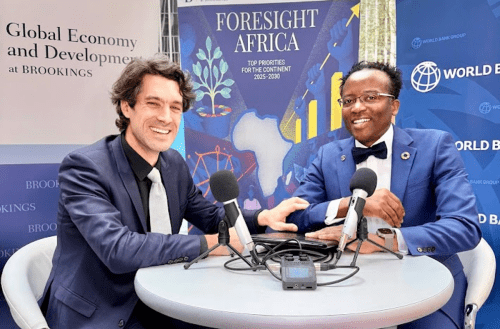Editor’s note: In an interview with Russia’s Slon, Fiona Hill discusses the impact of the Russian decision to ask USAID to discontinue its work in their country. The decision, she says, was unavoidable given the recent developments in the Russian polity. Her response has been translated by research assistant Hannah Thoburn. Read Fiona Hill’s remarks in Russian at Slon’s site here.
The decision of the Russian government was unavoidable. This became obvious after the approval of the new law on foreign agents and other related changes in Russian legislation. And in addition, the Russian leadership has long accused the United States of financing the opposition.
In reality, however, many of USAID’s programs are focused primarily on helping ordinary [Russian] citizens not activists. For example, programs for those sick with tuberculosis or AIDS. And in general, healthcare was one of the main spheres of activity for the organization. Now we won’t have programs like these, and it will be interesting to see whether the Russian government will now directly support the people affected [by the end of the programs].
Obviously, this move does not help the development of the Russian-American relationship in any way. The decision to close USAID was evidently based on the Kremlin’s belief that the USA has organized a political crisis in Russia. For this reason I am not at all surprised by what has happened. I am disappointed, but not surprised, by it.
Here [in Washington DC] there will inevitably be questions about the Obama Administration and its ‘reset’ policy. But other governments have made similar decisions and accused their opposition parties of working with the United States—not only in Russia. The same thing has happened in China, in the Middle East, Egypt. As soon as some countries experience internal political problems, their governments immediately blame some external force. And if you then assert that foreign assistance is the root of all the [problems] problems, then the next logical step is to close the organization that is providing the assistance. This is what the Russian government has done.
I do not know how far the Russian leadership is willing to go in this direction. It’s possible they will limit themselves to closings only to those organizations that depend on funding from the US. It’s also possible that this will also be extended to organizations linked, for example, to the European Union, which operate on the basis of Finnish, Swedish or Dutch grants. Indeed, Russia has recently issued a decree designed to prevent the European Union’s investigations into GazProm’s business practices and dealings.
On the other hand, I do not think that the Russian government is set for an open confrontation. Today’s decision does not automatically mean that the ‘reset’ is over. It all depends on how you assess it. The Obama administration presented the ‘reset’ as one of its seminal foreign policy initiatives, which was probably not the best decision. Right now, the US is preoccupied with its domestic elections season and Moscow is playing with this – trying to take advantage of the current situation.
The U.S.-Russian relationship has always faced obstacles and has always undergoes periods of worsening relations. This is one of them. But to draw anything more concrete in the way of conclusions [from this episode], we will have wait until November and the [US] elections.
The Brookings Institution is committed to quality, independence, and impact.
We are supported by a diverse array of funders. In line with our values and policies, each Brookings publication represents the sole views of its author(s).



Commentary
Russia’s Decision to Stop USAID
September 19, 2012